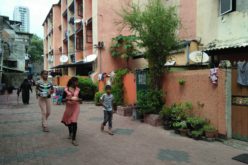The role of social capital in social and labour inclusion (Part 2)
This is the second of two posts written by Mario Yapu, a researcher at INESAD in Bolivia, a member of theSouthern Voice network. This post is based on his research “Social participation in groups as a dimension of social capital and employment,” part of the first ILAIPP conference. Click here to read the first part of the post.
The previous blog post summarized the main findings of our research about social capital conducted in Latin America. The question is, how does social capital contribute to labour and social inclusion? And what kinds of social inclusion can we speak of today?
Social inclusion is a product of many factors, including employment, social mobility, salaries and identity. It is undeniable that in today’s working world, having a job favorably affects the development of people and society itself. Does this development lead to social inclusion and, if so, what type of inclusion? This discussion is not very old and aims to go beyond the functional integration centered on poverty, which did not respect cultural diversity or simply adopted an integrationist or assimilationist ideology. Social inclusion has also been associated with social work linked to differently-abled people or “special people” (especially in education).
Social inclusion will only be useful to the extent that it accepts and strengthens cultural identities and at the same time closes inequality gaps. Historically, the analysis of inclusion has been conducted exclusively from the latter approach, putting aside and at times completely excluding cultural diversity as the colonial and republican histories of various Latin American countries show. Today, this approach is no longer relevant or acceptable. In multicultural societies, intercultural inclusion must recognize popular and indigenous knowledge, which is not an easy task to accomplish.
Employment, in turn, should be analyzed as a social construct that accepts and reinforces cultural identities. This requires a rethinking of the institutions and public policies so that, first and foremost, they avoid categorizing social capital as the panacea to problems of labour exclusion
In countries like Bolivia, social capital has not been a commonly researched theme since the concept of social movements surpassed it. The concept of social capital requires a state of institutionalism and democracy, which becomes difficult when the same institutions seek to transform themselves, as is happening in Bolivia with the emergence of indigenous people’s voice within the government. However, this does not mean that the emerging society does not need normative elements, trust, networks and understanding that concern social capital.
To conclude we would like point out two themes. On the one hand, social capital as a main alternative at a certain point (between the 1990s and 2000s) resulted in the marginalization of various contributions from the field of anthropology. For example, the collaborative work that appeared tied to community work in rural areas of the Andes had already been studied by rural development researchers since the 1970s and the concepts of “exchange,” “reciprocity,” and “solidarity,” by the ethno-historians of the 1960s. Due to the progress made in Latin America in the past few years, we suggest revisiting the contributions of economic anthropology and Bourdieu because they allow us to understand social capital in its production, use and performance; these are critical approaches that allow us to understand its positive and negative aspects not restricted to popular sectors or groups with “good relations” as they do “good practices.”
On the other hand, social capital as a strategy and instrument for labour and social inclusion is still central to the production and reproduction of social relations, as many other studies mention. For example, Nico Tassi et al analyze that family networks in commerce and the popular or informal economy in Bolivia, where due to the informal nature of entry into employment the accumulation of capital does not go through conventional normative frameworks; instead of job announcements, recruitment is based on knowledge and recognition (Medeiros et al. 2013). In this context what counts is not a person’s academic knowledge but their social relations. Another study by Carol Carlo (2013) illustrates the idea of family networks among migrant traders of the altiplano (high plateau) in Cobija, the Bolivian Amazon. All this does not happen because of public policy but is much more a result of the experience of popular urban social groups that are largely rural immigrants. Thus, neither social capital nor labour and social inclusion depend on State intervention.
1,364 total views, 2 views today








